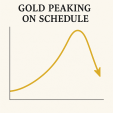Why A Weak Dollar Hurts U.S. Manufacturers
The vast majority of economists are currently hailing the freefall of the dollar as a windfall for American business. While some domestic manufacturers may enjoy some initial benefits from a weaker dollar, they will ultimately suffer many adverse consequences as well. More importantly, the dollar's demise is a disaster for American consumers.
A cheaper dollar helps domestic manufacturers because it makes local costs, such as wages and rents, decline in relation to the costs borne by international competitors. While this is true, it also means that American workers and landlords see a corresponding decline in the real values of their pay and rent. Given that such declines negatively impact living standards, such developments hardly seem worth celebrating.
Too often overlooked however is how the weakening dollar also works to increase costs for domestic manufacturers. A falling dollar raises the costs of raw materials, such as oil and metals, while simultaneously decreasing the relative costs that foreign competitors pay for the same supplies.
But it is not just raw materials prices that rise. Perhaps even more important will be the prices of foreign-made components that are used in American factories. In fact, many American "manufacturers" are really nothing more than assemblers of imported components. For example, take a domestic golf club company that supposedly manufactures clubs in the good old U.S.A. Such a company might import the heads from China, the shafts from Indonesia, and the grips from Mexico. The only thing the American company actually does is put the pieces together. So as the dollar loses value, the costs of importing all of the components will rise, making the finished product more expensive for Americans.
Another often overlooked cost of a weakening dollar is higher interest rates. Because a falling dollar diminishes the global appeal of dollar denominated debt, U.S. interest rates will inevitably rise, resulting in increasing capital costs for domestic manufacturers. Similarly, strengthening foreign currencies increases the appeal of non-dollar debt, reducing the capital costs paid by our foreign competitors.
Furthermore, as a weaker dollar forces up domestic consumer prices, American workers, suffering from declining real incomes, will ultimately press their employers for more generous pay raises. Rising nominal wages will eventually undermine the competitive gains associated with lower real wages that initially resulted from the falling dollar. Similarly, landlords will look to raise rents to make up for the falling purchasing power of their rental income.
Lastly, as rising interest rates and consumer prices combine to exacerbate the severity of the coming recession, federal tax receipts will inevitably decline causing the budget deficit to swell anew. A populist Congress will likely seek to impose even higher taxes on those businesses profiting during the hard times. So any advantages U.S. manufacturers might get from cheaper dollars may be lost to higher taxes.
The bottom line is that true competitiveness comes from sound money, high savings, low taxes, minimal government regulation, hard work, and the entrepreneurial spirit. Laying the hopes of America's industrial salvation on currency devaluation will only backfire, leaving American manufacturers even less competitive in the future than they are today.
For a more in depth analysis of the tenuous position of the American economy, the housing and mortgage markets, and U.S. dollar denominated investments, read my new book "Crash Proof: How to Profit from the Coming Economic Collapse." Click here to order a copy today.
For a more in depth analysis of inflation and how government statistics cover it up, read my new book "Crash Proof: How to Profit from the Coming Economic Collapse." Click here to order a copy today.
More importantly make sure to protect your wealth and preserve your purchasing power before it's too late. Protect your wealth and preserve your purchasing power before it's too late. Download my free research report on the powerful case for investing in foreign equities available at www.researchreportone.com


















